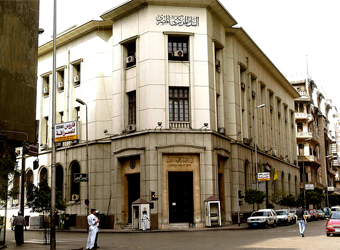The Central Bank of Egypt (CBE) issued new instructions to regulate exporting rice to abroad.
The CBE’s instructions stipulate listing rice among the commodities that exporters must complete exporting procedures for through the banks operating in the Egyptian market. Moreover the exporter must obtain a document proving that the exporter did so to submit it to the concerned customs office before the shipping.
The CBE issued in April 2013 instructions to banks to adhere to decision No. 235/2013 of the Ministry of Industry that stipulates exporting 13 commodities through one of the banks operating in Egypt.
The commodities subjected to these instructions include gold and gold jewellery, urea, copper rolls, iron or steel plates, iron or steel sticks, carbon black, anhydrous ammonia, cotton, crude aluminium, cane or beet sugar, cement, raw marble and granite, or that which is initially polished, or only cut through sawing or other methods.
The CBE’s instructions stipulate that the bank should issue a document for the exporters of these commodities, as long as the banks receive a written guarantee from the exporter including the period for the exports’ proceeds, and that the proceeds will be placed in accounts at the bank that issued the document.
If the proceeds are not received within a maximum of 180 days from the shipping date, or the exporter does not provide the date of receiving the proceeds, within a maximum of a year from the shipping date, and after following up with the client, the bank that issued the document must report to the CBE. The defaulting client’s data will then be circulated in the banking sector, and the client is listed as a defaulter, in order to prevent any future operations.
The bank must also report also Ministry of Trade and Industry, the foreign trade sector, and the Egyptian Customs Authority, to take the necessary procedures towards the defaulting client.
Source: Daily News Egypt


